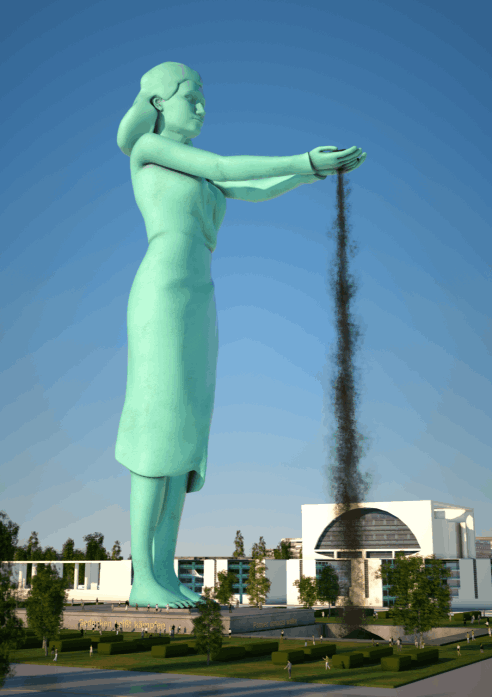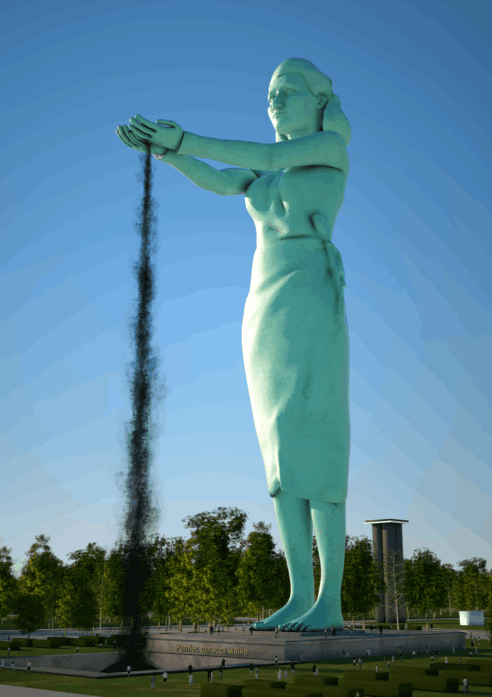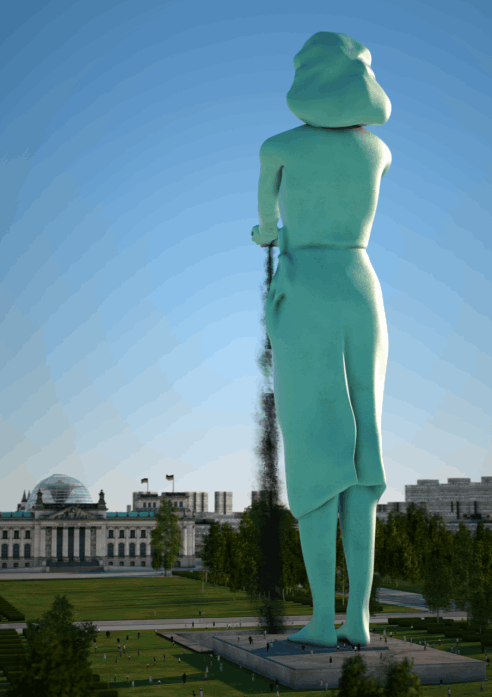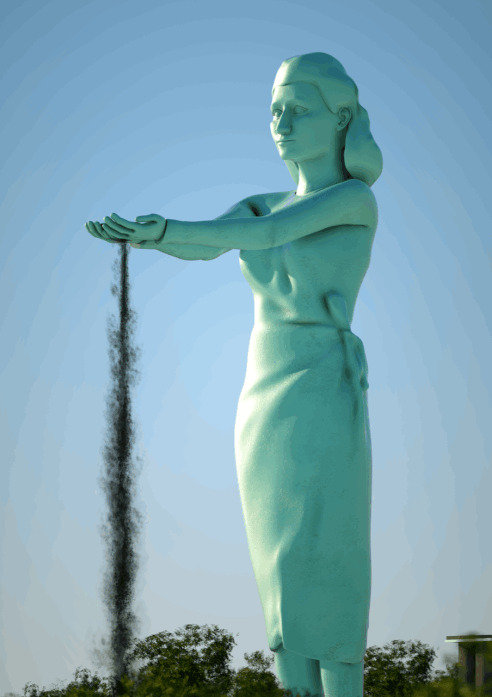

Failing to remember takes away our fear of what politics is capable of. There is not only guilt for the Holocaust. There is also an obligation. This obligation is to go beyond abstract remembrance and prevent fascism in a very concrete and very real way. Throughout time, we are challenged anew to determine what that means. Today, Nazi slogans are openly shouted on the streets, synagogues are attacked, people are hunted, death lists are drawn up, and CDU politicians are executed. What do we do? What do we do to fight fascism?
Despite all efforts: the enemies of the constitution have returned. They have a third of the votes in the East. They are the third biggest political force in the country. Among their leaders are members of the hard-right extremist scene. And the traitors to democracy are already forming as well. The Holocaust was not a mythical, prehistorical event. It was possible. It is possible. And it remains possible. There is no »back then«, there is just »over there«: a place with a forever gaping abyss. If we cannot close it once and for all, we must guard it – for all time. History teaches us to recognize the warning signs early enough. It does not teach us what they may look like. Behold history. Behold our obligation. To remember is to fight.
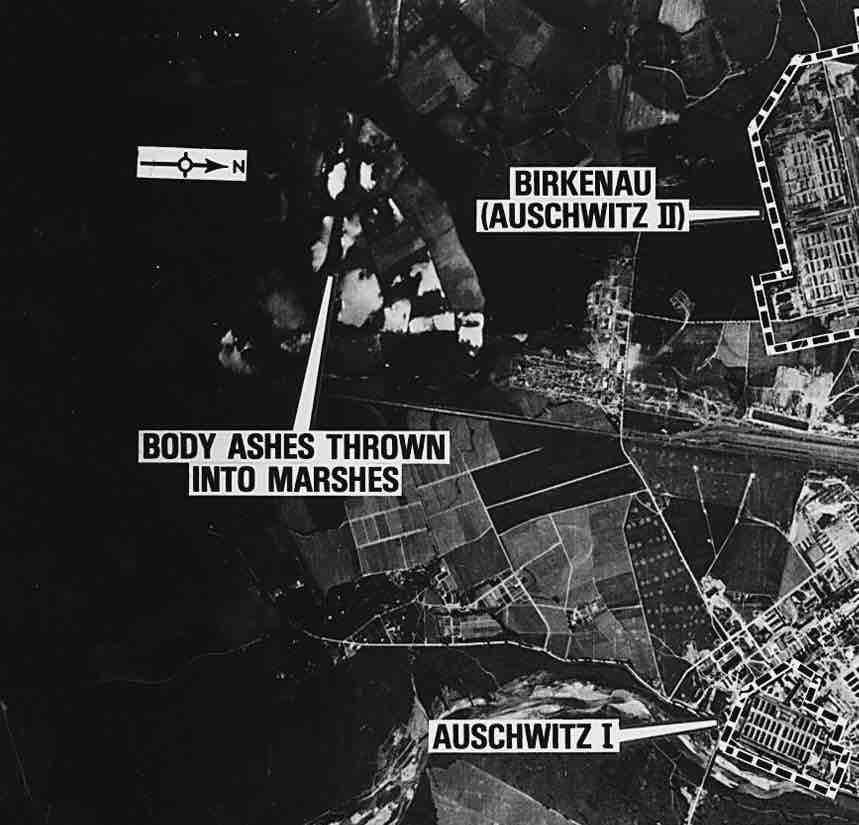
History is the result of politics. The Holocaust is the result of politics, in its worst possible version. It is the trauma of the end of enlightenment, of progress, idealism, and time itself. It is the undiscovered end of history. »You can only really understand genocide«, the historian Samuel Kassow said, »if you get to know and realize who and what was exterminated.« The victims were human beings just like us. Their final messages could be written just the same today. These are testimonies of human beings with names, faces, desires, and hopes.
In the tradition of Emanuel Ringelblum, after two years of work, the CPB presents an extensive collection of documents in book form: »We want to live so badly, but they don’t let us, we will perish. I am terribly afraid of this death, as they are throwing little children into the pit alive. Goodbye forever. I kiss you dearly.« They wrote their messages to posterity on postcards and threw them out of the deportation trains, buried them in pickle jars or thermos flasks, or hid them in the false bottom of bowls. Snippets of half-destroyed memory, but: an atlas of individuality. Remembrance becomes mourning over monumental extinction, mourning for the burned.

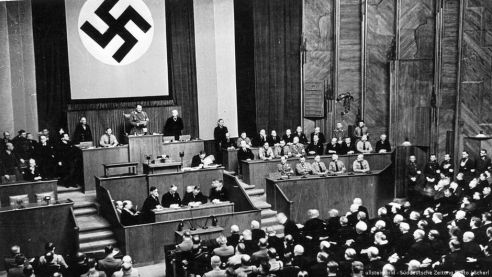
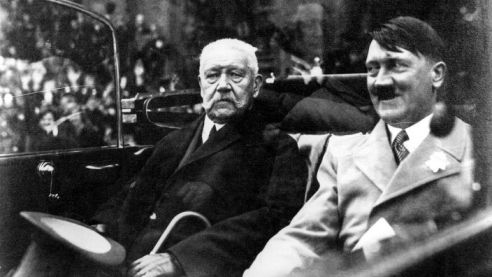
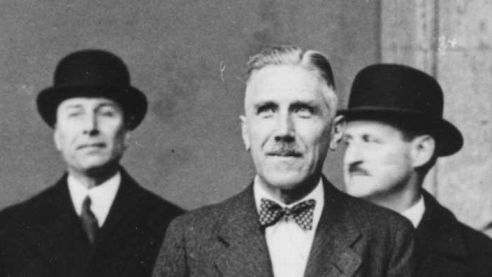
The Center for Political Beauty has brought the ashes of those murdered by the Nazi dictatorship to the government district, to the very place where democracy was squashed in 1933. Right opposite the Bundestag commenced the extermination of millions of human beings. On the site of the former Kroll opera, conservatism placed German democracy in the hands of murderers. To this day, nothing there reminds of this betrayal.
The desire for new representative buildings has made us forget to mark the place where democracy was betrayed. History is not just made up of city palaces. Today, the threat of power being handed over to fascists is more real than ever. Conservatist circles are reaching out to the fascists once again, pondering whether the AfD might not be a good coalition partner after all. There must be a red line to the enemies of democracy. Conservatism does not just bear historical guilt, the consequences of its naïvety, recklessness, and power thirst were murderous. Enemies of the constitution are to be feared.
History has got something to tell us. The dead have got something to tell us. The betrayal of democracy must have something to tell us. Remembrance is not abstract. To remember is to shake up and awaken. To remember is to fight. The memorial was created for anyone who finds it too concrete. It is always those who are here and now who are responsible for remembering. Which form this remembrance takes determines whether we are capable of keeping the abyss shut. The »power of history« depends on our remembering. Let us act before it is too late.
»The fact of the matter is this: in all countries of the world, including and especially in Germany, fascism was not ushered in by the angry mob, but by elites, who legitimate the population's racism and institutionally and systematically entrench it in public thought, speech, and action.«

»Younger and older people can help each other understand why it is vital to keep memory alive. It is not about overcoming the past. That is not possible. Those who close their eyes to the past are blind to the present. Anyone who does not want to remember inhumanity, becomes susceptible to falling prey to it again.«

»The message of those who remained there must be passed down through the centuries, even if there are no more survivors with tattooed arms to fulfill this duty.«


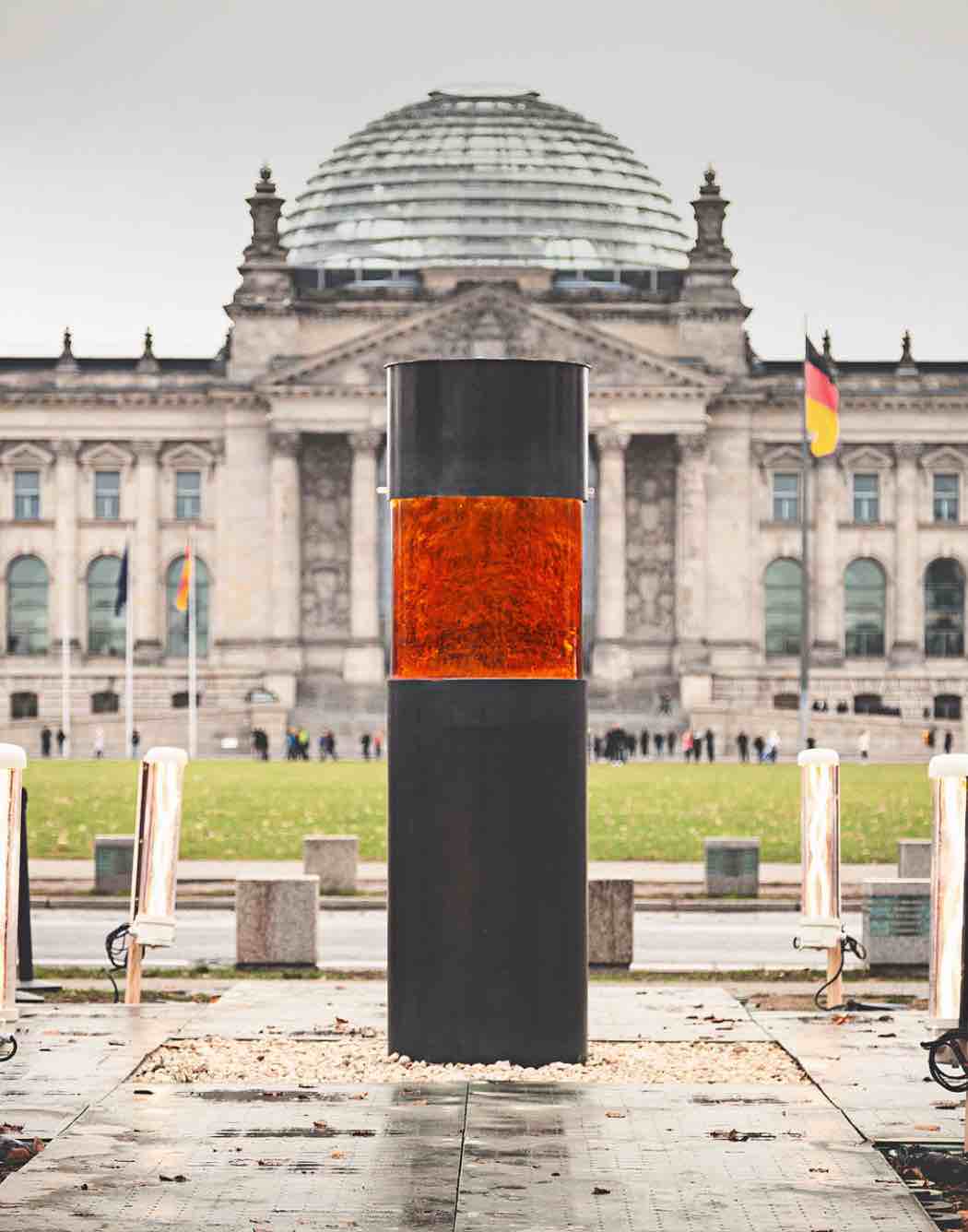
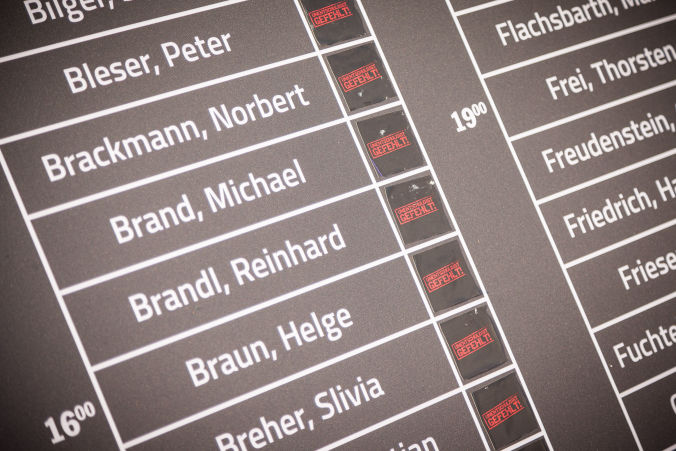
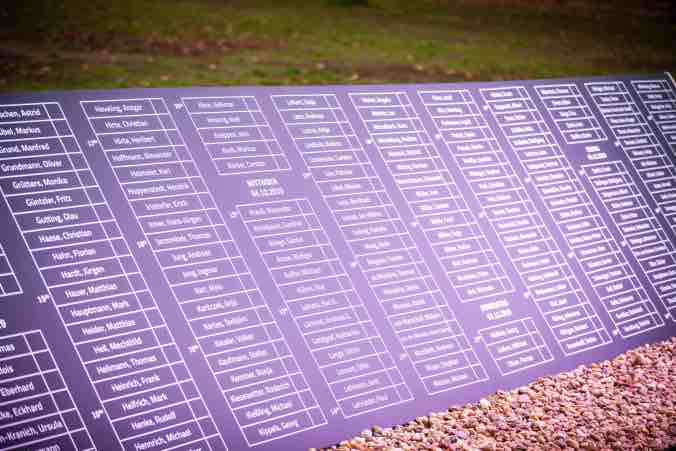
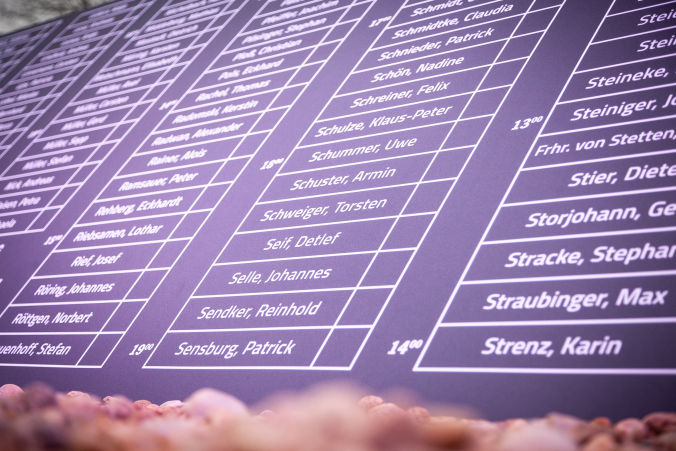
For the AfD, the only imaginable path to power is via the CDU/CSU. The warning not to make a pact with the fascists and not to be tolerated by them (»minority government«), is directed at all parties. But the most suspicious, historically speaking, are the conservatives. Who could betray the Republic to fascism? Who could carelessly hand over the Republic in exchange for power? Conservative parties played a crucial role in the destruction of democracy in 1933. The downfall of conservatism always proceeds in the same three steps: appeasement, denial, self-denial. All this silence, downplaying, relativizing, and legitimating must stop. This is also a memorial against historical and political relativization.
Behold the threat. Behold those murdered. Behold the human beings. »Never again« must be the basis for political action in Germany, the basis of the law. What the country would really need is a federal office for case-specific early detection and analysis of societal and political phenomena as harbingers of a fascist takeover. A big part of the challenge is to identify these developments as such and to articulate them. If it looks like the NSDAP before it took power, if it shouts like the NSDAP, and if it murders like the NSDAP, then maybe it is a new NSDAP.
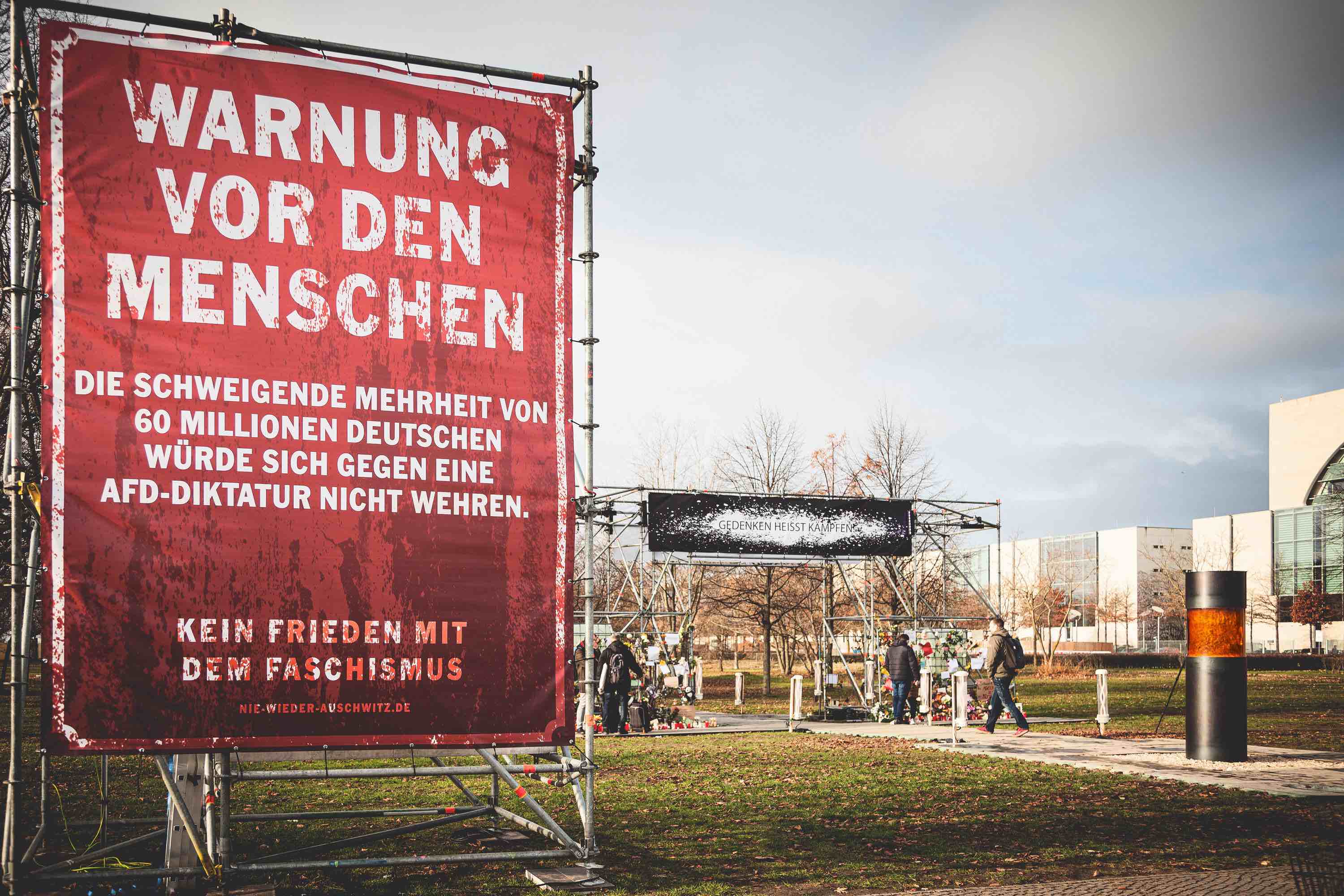
Mr Aly, is it true that until now nobody was taking care of the remains of the Nazi victims? Did the Center for Political Beauty first have to pour their alleged ashes in a column?
Götz Aly: Yes, you can say that on the whole. And above all, we are not dealing with alleged ashes of Nazi victims here, but with actual ashes. Europe and also parts of Germany are full of these mass graves. And nobody cared about them.
The German war graves for our soldiers are taken care of everywhere, from Saint Petersburg to Crete. But the location of the remains of those murdered in the camps is unknown. Even the ground is not marked. This is a kind of denial, of »not wanting to know«.
We just do not really want to know, want to push it away. It is something else than a fallen soldier in the war. Here, people were to be depersonalized, made into nothing. And this, in fact, still happens to this day.
This act of showing – here are the mortal remains of at least 10,000 people or more who were gassed or shot – we have to take it on in the long run. That is why I think it is good that the Center for Political Beauty is drawing attention to this point.
What is the danger that the victims are instrumentalized for an artistic performance like this?
I do not think that that is happening. If this group says – »Okay, we want to lift them from oblivion. We want to expose this blind spot in historical understanding. We want to show what has stayed secret«, then I think that is definitely justified.
Source: mdr
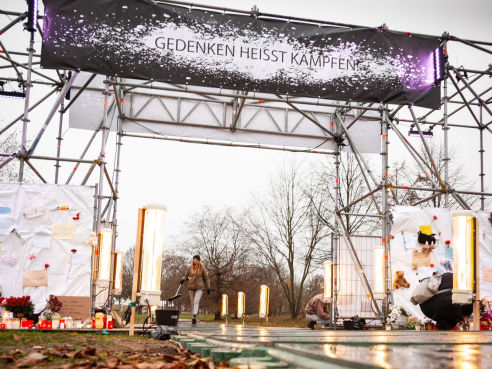
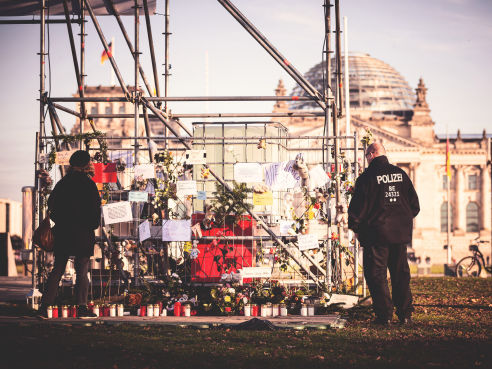

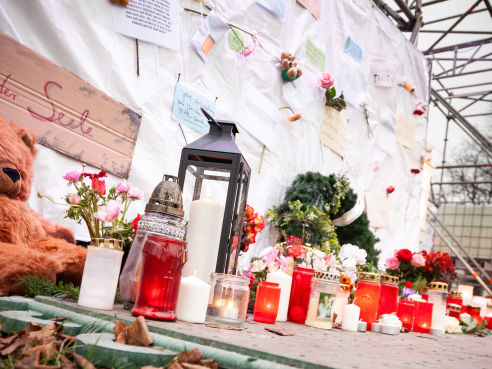
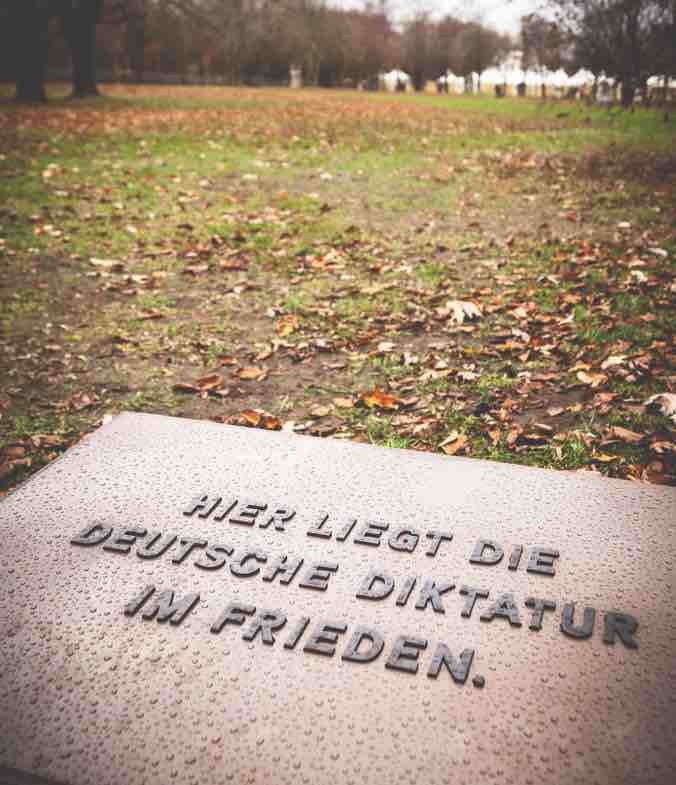
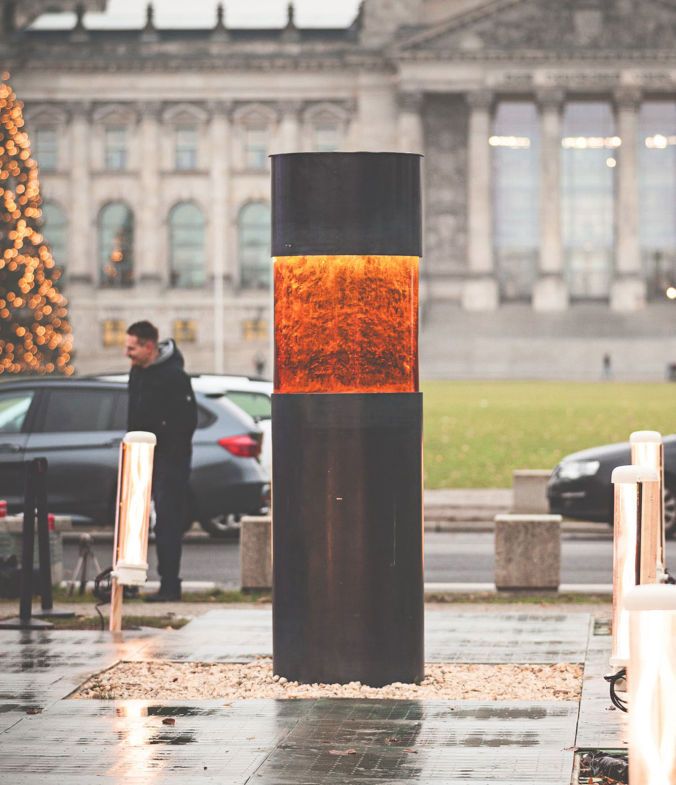

»All I know is this: the Nazis told the people in the camps that the world would never know what was happening to them. That is why these people were turned to ashes in the first place. My grandfather never spoke about the Holocaust, but it was still important to him and tens of thousands of other survivors to bear testimony at Yad Vashem and save their stories from oblivion. It is easy to accuse [the CPB] of instrumentalization. It is an empty accusation. Of course, you instrumentalize the stories of the victims, so that they don’t die out.«

»You can’t duly remember everyone’s past and appeal to the present at the same time. You need an element of shock to appeal to the present. And for the Jewish community, of course, unpleasant is bad. I know many people who went to see this column for themselves. And the ones who went came back and said that it was actually pretty impressive and exactly what we needed, because it had such undeniable power.«

»(I remember) very clearly how much it pained my family, especially my grandmother, that the fate of my uncle could not be brought to light. That there was no grave. That it was unclear if he had been buried properly or was lying under the grass in some German forest.
I am glad that your campaign has brought attention to people like my uncle and has helped to make the hidden traces of the disappeared visible again.«

»It is conceivable to pretend that the public display of Jewish ashes served a commemorative function. It has little to do with reverent remembrance, it is rather about the descendants of the perpetrators shaking themselves up. In this case without consideration for the victims and their families.«

»Already at the opening of the Holocaust Memorial, Jews objected to instrumentalizing the remains of those murdered. According to Jewish law, mortal remains may only be buried in Jewish cemeteries. The #CPB initative may be well-intentioned, but it is fundamentally wrong.«

»It is no easy feat to run an initiative so poorly that people like myself, who support its goal 100%, end up rejecting it 100%.«

»As a Jew, I think the initiative is great. But it goes to show that you can’t please everyone with initiatives.«

»So, here’s the big question: do Jews enjoy seeing the actual bones and ashes of Holocaust victims being put on display in Berlin (a Mecca for Israelis, by the way)? No, they don’t.«

»As is the case everywhere, orthodox people speak only for a part of society. And orthodox people, as is the case everywhere, unfortunately stand for a mostly reactionary and retrograde part that does not want change and refuses a development away from the reflection-worthy status quo to a liberal humanist coexistence.
Even if your basic intention to deal with it this way is very good, you have bowed to the masses of (also Jewish) enraged citizens.
Everyone in our family (from young to very old) supports your campaign. Not without much debate, but ultimately everybody sees the point. Finally, those of us whose human remains have simply been dumped in the ground have received the necessary attention and respect they deserve.
Thank you.«

»Coming from a secular Jewish family myself, I find it difficult to understand the argument about defiling the dead, especially since those who were murdered and whose bodies were burned never found any peace and you can’t violate a peace that doesn’t exist. Still, I appreciate that you now want to cover or remove the column with the ashes, out of consideration for these feelings and particularly because your actual cause was overshadowed by this discussion, which is regrettable.
One good thing is coming of this in any case: at least we are now talking about the ashes of those murdered, which has not been the case in public discourse so far. That in itself is worth the fuss.«

»We lost 2 family members in Mauthausen. Should I ever be killed by Fascists and in such a brutish way, may my ashes be scattered on the steps of the Reichstag. So that everyone going in or out may carry a little bit of them into their home! I can understand their anger, but I still think that this campaign would have been utterly approved by my ancestors.«

»Indeed, I have never thought about what happened with the ashes. Years ago, on a visit to Auschwitz-Birkenau with my mother, who survived the horror there, we asked about the remains of our murdered family members but received no answer. My family, which is directly affected, fully supports your initiative!«

»Jews may have confidently built this country and its culture: from the arts to the economy. But they are remembered as ashes. Not the achievements of the dead are displayed, not the gas canisters of the perpetrators, but the bones of the victims.«

»While many applauded the group for recognizing an error, others criticized it for backing down. For example, one user wrote: ›As far as I know about people, victims
prefer to be seen — although the selfish relatives might say something different now.
That’s why you should stand behind your actions.‹«

»I have discussed this concept at length in my family (Jewish and Protestant). We agreed that to seemingly break taboos may be necessary as the most explicit artistic expression of protest against forgetting the victims and rekindling the ideological foundation for the crimes.«

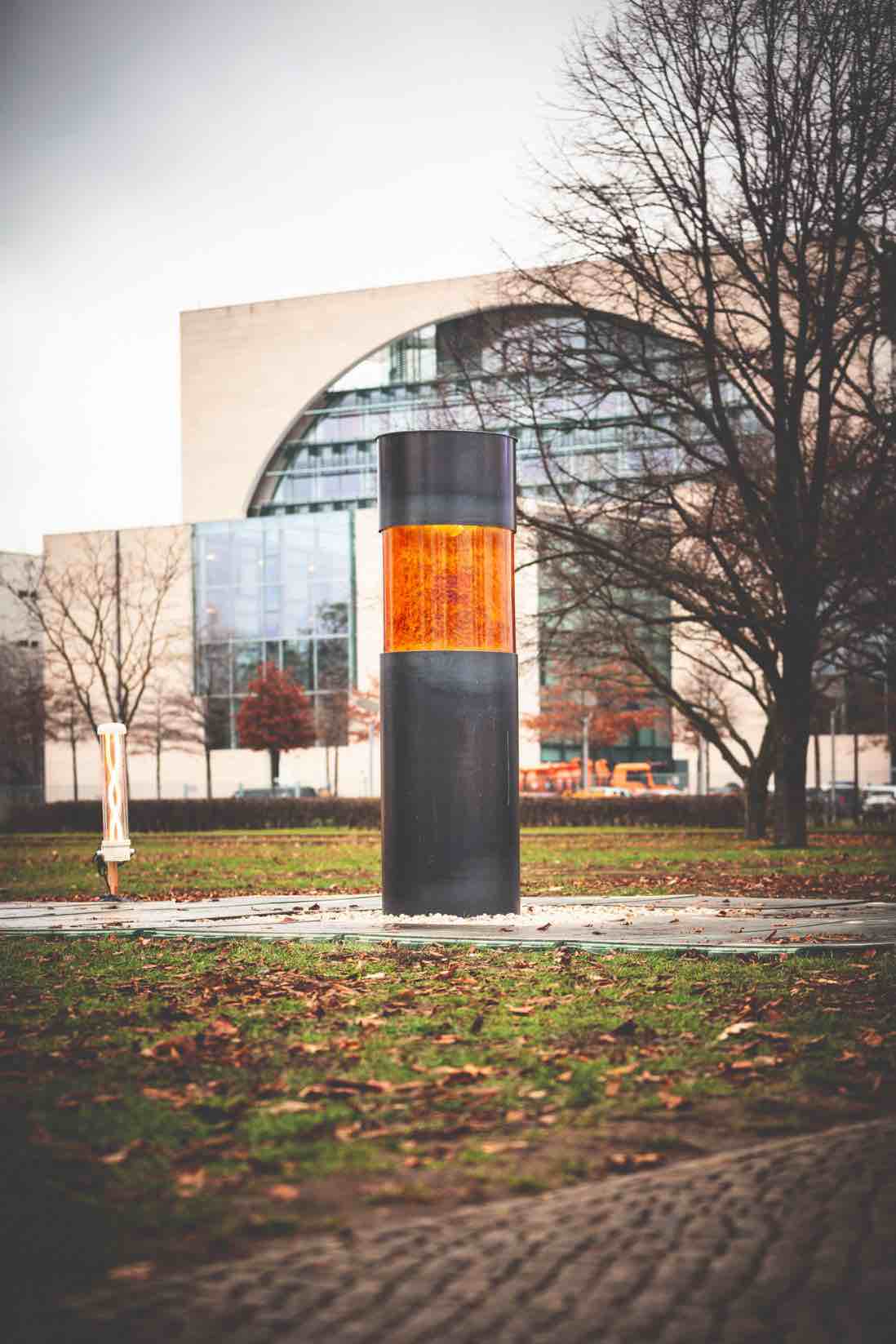
»Historically articulating the past does not mean recognizing it ›as it actually was‹. It means seizing a memory as it flashes up in the moment of danger.«

»The ashes of the annihilated near the Reichstag confront politicians and us with the consequences of our actions or the consequences of our inaction.«

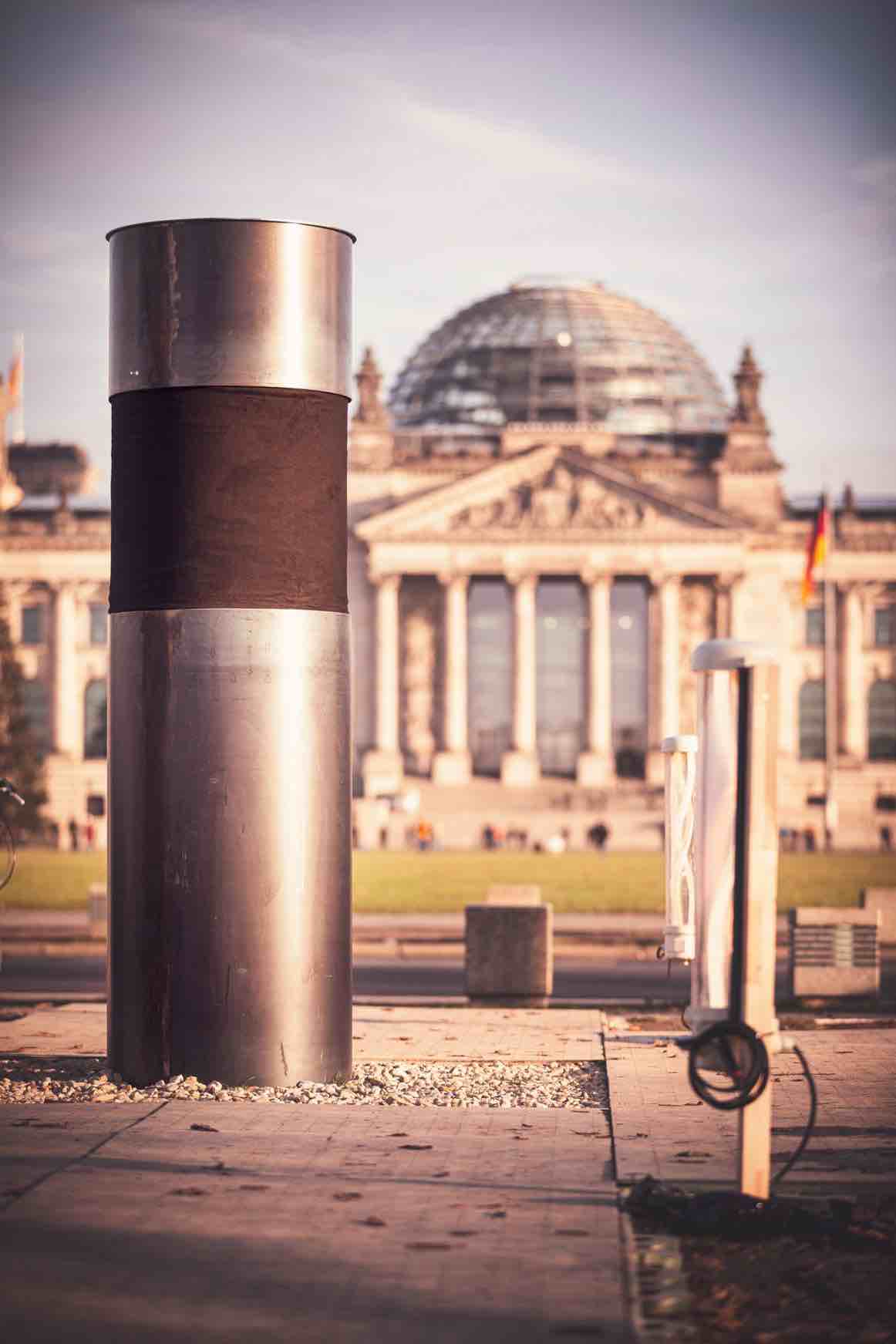
Voices grew louder in public debate that demanded: »Dismantle now!«. We ask: where to? Where should the content go? Back to the forest, to the hidden dump that German Nazi henchmen dug out 75 years ago? Put some soil over it? Is everything going to be »well« again then? Burned remains of people, religion unknown? Where on this earth can these people be laid to rest? Where, if not at the beginning: the wasteland of the Kroll Opera House in Berlin’s government district.
Please note the interviews in the Tagesspiegel and the Berliner Zeitung with our artistic director (in German).
This is why there won’t be any more operations surrounding the Holocaust
»The Holocaust is always our anchor point«
Following the criticism of our treatment of the ashes and the pain, which we did not mean to cause, we apologized, handed over the ashes to the orthodox Rabbis' conference and took a new approach.
»I found the discussion important and it also showed me some dark places within me. I’ve got to admit, I have rarely felt as torn inside as this week.«

»›No, paintings aren’t for decorating apartments‹ - Pablo Picasso.«

»The CPB is an art group of this time. The attention span is short, people register only things that go boom. At the moment, we don’t deserve anything better than the CPB although we’d sure need it.«

»Art as a horsewhip for society, that’s one way to look at it.«

»I think it’s unethical to call this memorial unethical.«

»Too bad that the CPB collected donations earmarked for the column to be permanently set in concrete. This is why they now resist its final removal. I guess it’s all about the money after all.«

»I am infinitely saddened by your move to defend yourselves, to admit guilt and mistakes, to take this to heart although you didn’t need to! You have worked on your art for 2.5 years, you have written a scientific treatise, you have taken the victims and their last will not to be forgotten seriously, you have searched for them, you have enlightened many who had never thought about what actually happened to the ashes, you have – once again – sparked a debate in which only a few have so far understood the core of your question, wanted to understand. Will German conservatism once again enable fascism? Is that what was to be proved? [...] You are among one of the last bastions, have you fallen?«

»The district office demands the column to be removed, but the activists refuse. Anyone can do what they want in the Tiergarten.«

»This is probably the most this topic has ever been talked about, on all channels, and that's good.«

Morning star Centre for Political Beauty apologises for insensitive use of Holocaust
The Art Newspaper Art activists anger Holocaust survivors with Berlin monument containing ashes
DW Holocaust memorial with ›victim ashes‹ erected in Berlin
Jewish Press Holocaust Survivors ›Aghast‹ at Berlin Protest Using Victims’ Ashes, Also: German Bad Taste
Times Of Israel Outrage after activists place ashes of ›Auschwitz victims‹ outside Reichstag
Metro Activists leave ›Holocaust victims‹ ashes’ outside German parliament
Newser Activists Sorry for Using Remains of Holocaust Victims
The times of Israel Activists Sorry for Using Remains of Holocaust Victims
New York Post Art installation using ›Holocaust ashes‹ sparks outrage in Germany
Israel Nation News German activist group sorry for using Holocaust victims’ ashes
Express German activists apologise for using Holocaust victims remains in anti-Nazi installation
Times of Isreal German activist apologize for using ashes of Ausschwitz victims in protest
CNN German art activists apologize for displaying urn containing ›Holocaust ashes‹
Mail One German art group apologises for displaying Holocaust victims' ashes at an anti.Nazi memorial in Berlin
HAARETZ How a German Political Stunt Using Holocaust Victims’ Remains Went Disastrously Wrong
Associated press Activists apologize for use of Holocaust vistims remains
Europe News German art group ZPS apologises for Berlin ›Holocaust ashes‹
Arab News Activists apologize for use of Holocaust victims’ remains
VOA News Angered by Activists' Use of Holocaust Victims' Remains
ruptly Germany: New Holocaust memorial ›oblivious to history‹ if victim's ashes used
Apollo Controversial monument containing ashes from Holocaust victims installed in Berlin
Forward German Activists Apologize For Stunt Using Holocaust Victims’ Ashes
The Jerusalem Post German NGO blasted for exhibiting ashes of Jews from the Shoah
The limited Times Center for Political Beauty: Art activists erect a memorial for Holocaust victims
The san Diego union Tribune Activists apologize for use of Holocaust victims’ remains
Ottawa City News Activists apologize for use of Holocaust victims’ remains
The times Artists dig up ashes of Holocaust victims to send Angela Merkel a message
AP News Berlin police stop removal of urn that angered Jewish groups
Project Witness Jewish Groups Angered by Use of Holocaust Victims’ Ashes
Guernsey Press Activists apologise for use of ›Holocaust ashes‹ in installation
Jewish News Urn placed near German parliament contains ashes of Shoah victims, group says
City news Montreal Jews angered by activists’ use of Holocaust victims’ ashes
The limited Times
Comment: The Center for Political Beauty makes Jews an object
»The CPB, despite possible accusations of impiety, can invoke that victims of the Holocaust and resistance fighters like Salmen Gradowski, who was murdered in 1944, still managed to leave notes during their lifetimes instructing posterity to search for their ashes and use them to keep alive the memory of the millions murdered.«

»What is certain is that the ashes and the remains of the people who were murdered by the Nazis were not buried with dignity, but they were dumped in the ground. And they were dumped in places that are either unknown to this day or trampled-over pathways or something else. And I think we need to think very carefully – and this is an occasion for that – about how we deal with that.«

»Human remains can still be found everywhere today. Our ›established remembrance machine,‹ with its pompous memorials and wreath dropping sites and bus parking lots, serves to keep these dead at bay. It is an abstraction that invites disassociation. But the dead are all still there. [...] Apparently they are second-class dead. The German War Graves Commission has 85,000 members and cares for the graves of more than 2.7 million fallen soldiers of both world wars in 832 cemeteries in 46 countries.«

»According to Berlin historian Prof. Arnd Bauerkämper, it is also the task of museums and memorial sites to show how the bodies of victims of Nazi mass killings were disposed of. ›That one should draw attention to the subject is absolutely right.‹«

»The CPB meticulously plans its operations, excellent logistics specialists and certainly also lawyers are involved. So the activists know very well that they disturb the dead and break taboos. They do this deliberately, that’s their point. Otherwise, they would choose different forms of political protest.«

»And the question ›where to?‹ is the actual question. The fact that there is no answer to that invokes the monstrosity of what happened more impressively than is provided for in our ritualized remembrance politics. In a country where Jewish cemeteries are still desecrated and synagogues are still attacked.«

»The ›resistance column‹ does not only remember the victims of the Holocaust, but also uses this urgently needed remembrance work under the motto ›to remember is to fight‹ for concrete political resistance against fascism today.«

»It is absolutely right to save the Jewish victims of National Socialism from oblivion at a time when synagogues are attacked again in Germany.«

»The memorial would show the historical guilt of the Germans to have gotten involved with the fascists. This should never be allowed to happen again.«

»Truly, this stele poses no threat to the public. But others do. Therefore, yesterday, today and forevermore antifascism shall be the order of the day.«

»The fact that the remains of those murdered by Hitler’s Germany are literally in the ground, also in Germany, will be news to most Germans.«

»We need another kind of remembering. Not an empty one, not a ritualized one, not one that shakes people up with how distasteful it is. But one that does not instrumentalize the victims or their descendants for our daily politics and does not turn them into objects of failed art performances.«

»The ideological delusion of these self-professed resistance fighters is dizzying.«

»The name alone shows that politics and aesthetics are meant to go together. Center for Political Beauty – there is something Dadaistic about it. In the twenties, surrealism and Dada was followed by the totalitarian.«

»It is possible to talk about it, to put it on the agenda without playing with the idea that a column near the Reichstag holds the remains of dead Jews. The CPB campaign has made the victims of the Shoah objects again, dehumanized them without giving them a say, turned them into props in a theater production.«

»The stele with the ash core in Berlin is to be covered and dismantled. The website is taken down. Those responsible have apologized.
The campaign by the “Center for Political Beauty” has utterly failed. But it is still a lesson. It is doubtful though that the organizers or their supporters will understand this.«

»Refugee corpses, Jews, Nazis, plus a little Holocaust reference every now and then – that is a mix of show and shock that cannot add up. Because the broken taboo takes up all the attention and the shock overrides any discussion.«

»We do think provocative performances are appropriate in these times. After all, we see that the political poison that contributed to National Socialism, nationalist-authoritarian and antidemocratic thought is spreading (cue the AfD). But the shrill always comes with the unintended side effect that it fizzles out very quickly and that the discussion misses the actual point.«

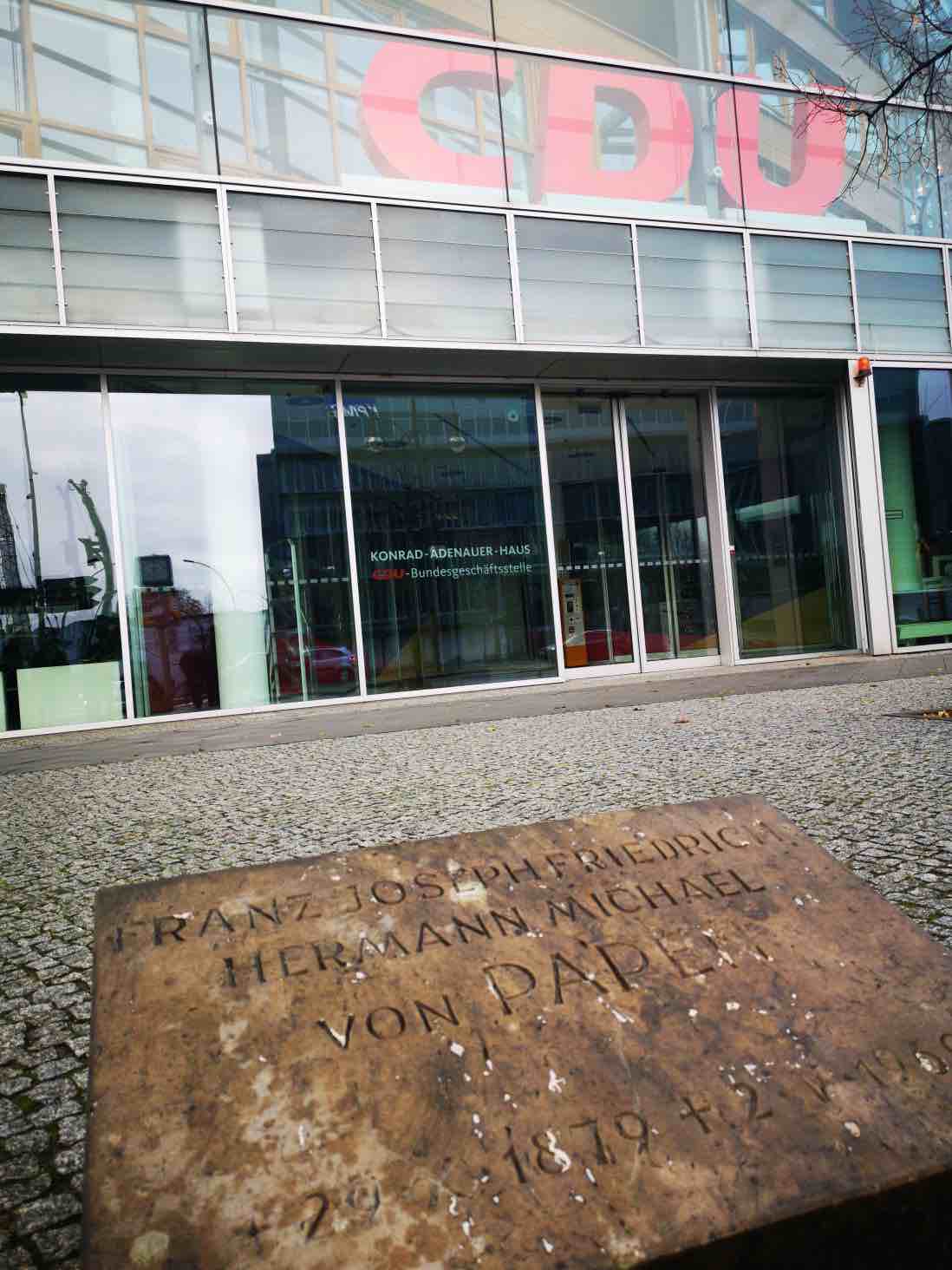
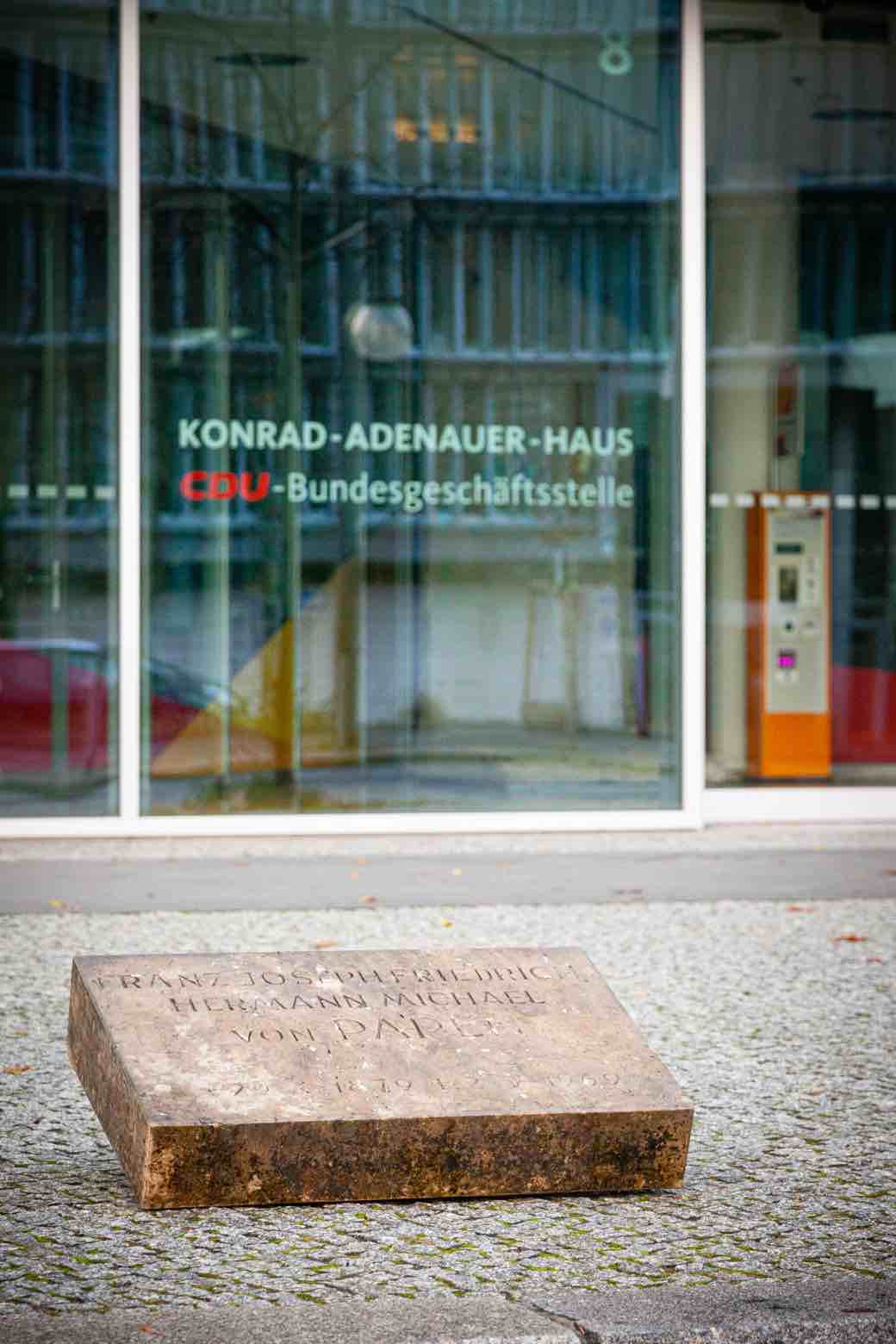
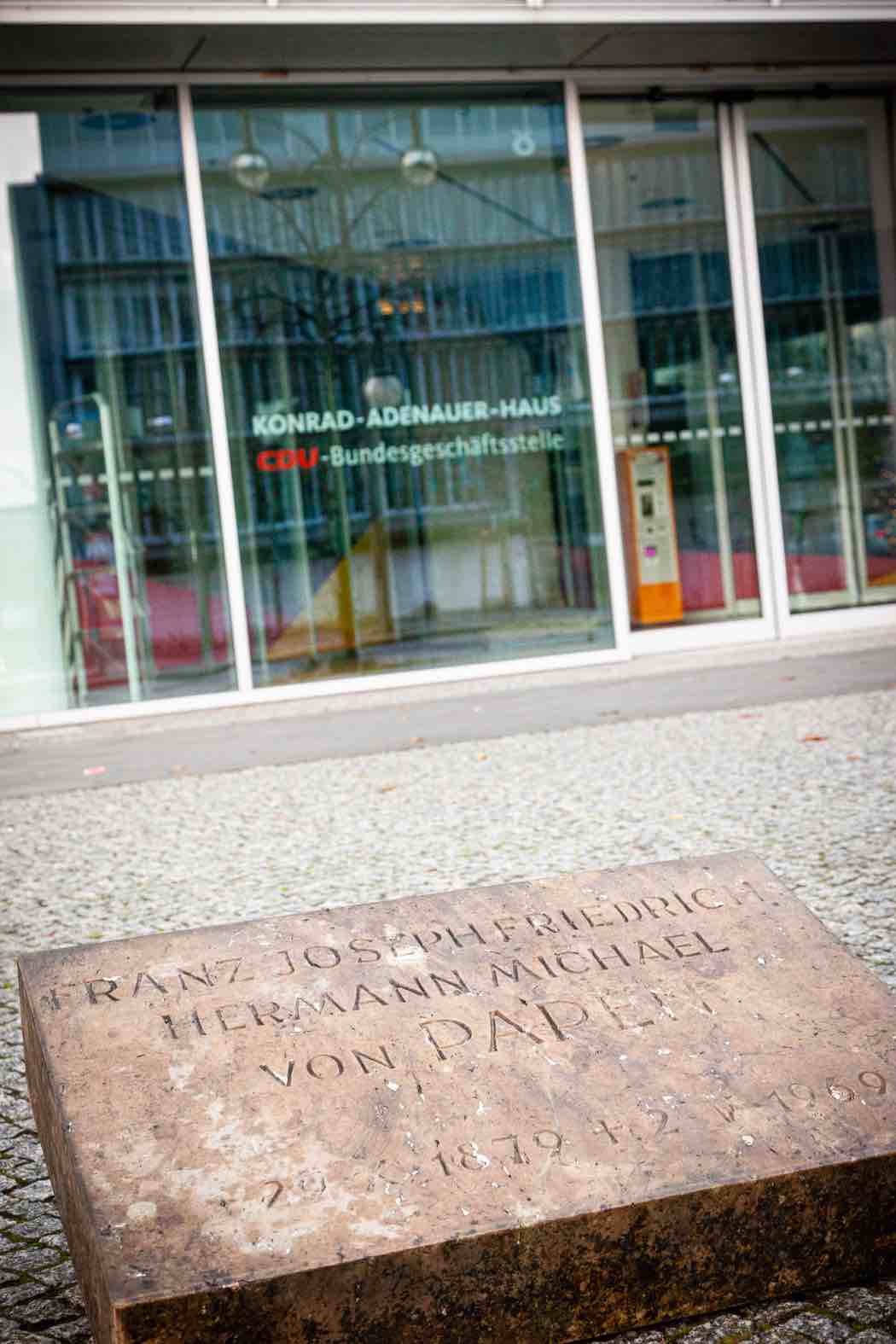
»Our research confirms: von Papen’s gravestone is really missing. Where the stone slab weighing about 130 kilograms should lie in the ground, there is a gap, only the slab of his wife Octavie can still be seen.«

»The placing down of von Papen’s gravestone is not meant to remind of mistakes made in accounting for the Third Reich. That’s in the past, nobody can change it. No, this is an admonition for the future of the CDU NEVER to make the cardinal error that von Papen made, which parts of the CDU are flirting with with regards to the AfD and which was just repeated in Italy by the Five Star Movement: ›In two months’time we will have driven Hitler into a corner that he’ll squeak‹«

More or less under the eyes of the police, our SWAT team poured a four-ton reinforced concrete foundation for the newly designed memorial overnight. We obtained the opinion of a structural engineer to guarantee that the structure will be stable for the next 30 years and that there is no danger to public safety - on the contrary!
It could become one of the most relevant places of remembrance and resistance of the next decade: A place where every person who deems democracy worthy will take a binding oath in its defense. Emblazoned on the column is the oath from the civil society tattoo against the AfD. We want to defend fundamental rights to the hilt. And we all know against whom.
The oath dates back to the early days of democracy (410 BCE) and finds its affirmation in Article 20 (4) of the Basic Law: »All Germans shall have the right to resist any person seeking to abolish this constitutional order if no other remedy is available.« These rights to violence and self-defense are democratically radical (not to speak of Art. 18).
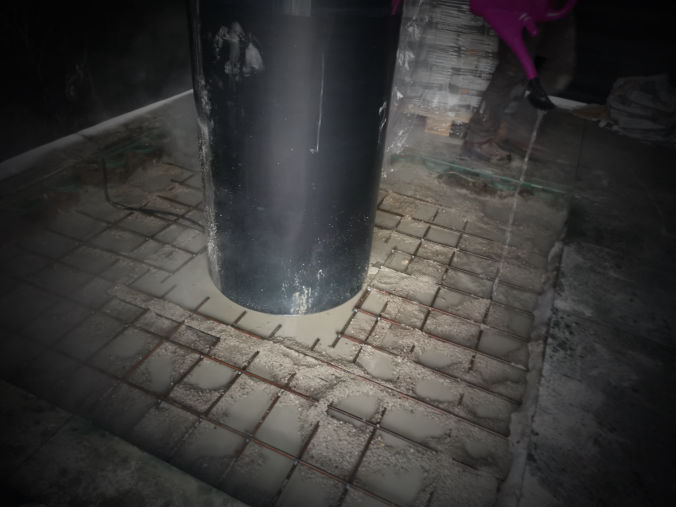
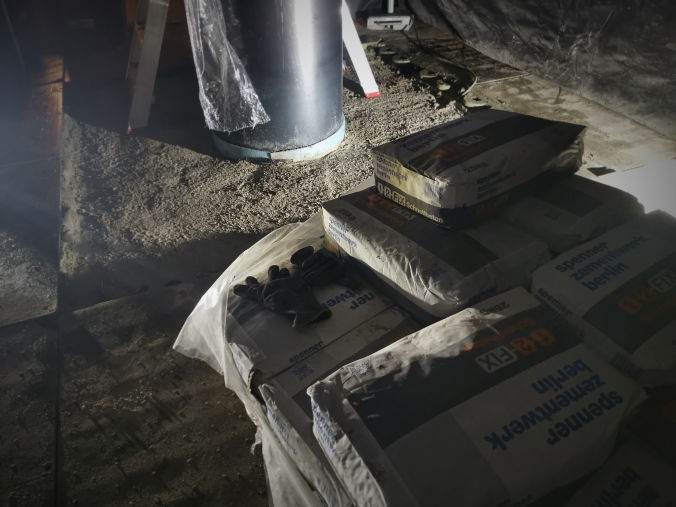
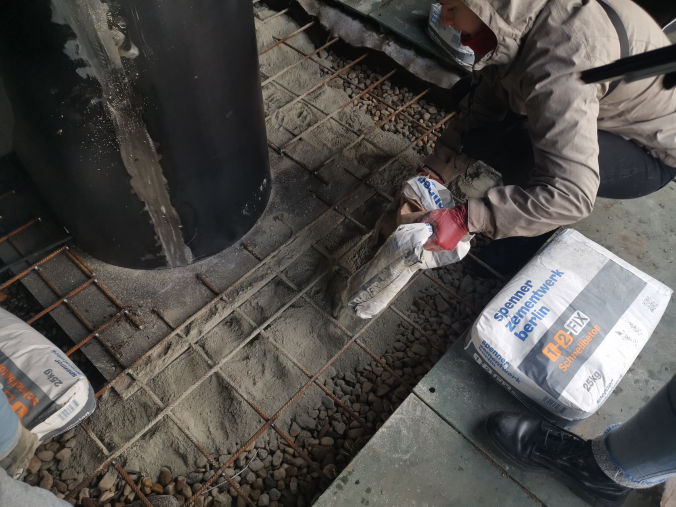
Where are the ashes of those murdered by Hitler's Germany? Where lie the millions of victims of German fascism? As unbelievable as it sounds, those who were killed, those who were burned, those who were dumped in the ground are still lying around everywhere 74 years after the Nazi mass murders. Also in Germany. They are among us. Before they died, they wrote: »Keep searching! You will find more!« (Salmen Lewenthal on Aug. 15, 1944, in a buried letter.) Salmen Gradowski, killed in 1944: »Dear finder, search everywhere, every inch of earth. Search in the ashes. These we have scattered so that the world may find factual evidence of millions of people.« Filip Müller says in Lanzmann's Shoah: «We made sure that the world would dig into this earth.«
They pleaded: Search for us! They assumed the world would find them. Their ashes were cemented into dams, dumped in fields and into rivers. We searched for them where there is no grave and no final resting place, only places of turmoil and execution. Buried remains, charred limbs, fingers, hands, parts of arms, legs and feet, torsos and pelvic bones. We collected soil samples from 23 sites and sent them to laboratories. In a large number of the samples, we found evidence of human remains. The unwanted hiding places of the Nazis, forgotten by the world, not searched for by the German state, suppressed by the public. - Thousands of them.
»Thousands upon thousands of Euros are spent on exhuming battlefields with students and creating grave sites for fallen soldiers. Did something like that happen with the ashes of Nazi victims? No.«

»I wasn't even aware that the ashes from the millions of victims are just scattered about in the countryside, made into building material - and not even acknowledged. The Nazi victims are not paid tribute to until today - they are still present - that is unbelievable. That is the real scandal.«

»At this point, please don't say ›not enough is happening,‹ because it's mainly the archaeologists, who are totally understaffed and underfunded, who are on the receiving end of this. Demand proper funding for this work, because it's far too often happening on the side every now and then, and people who are really qualified for it find plenty of work but no one to pay them.»

In the ponds surrounding Harmense, in an area of 380 hectares, fish farming was started after the German invasion. Historian Anna Zieba writes in her essay published in 1970: »On the border of the village of Harmense and Plawy, prisoners heaped up a dam from ashes.«
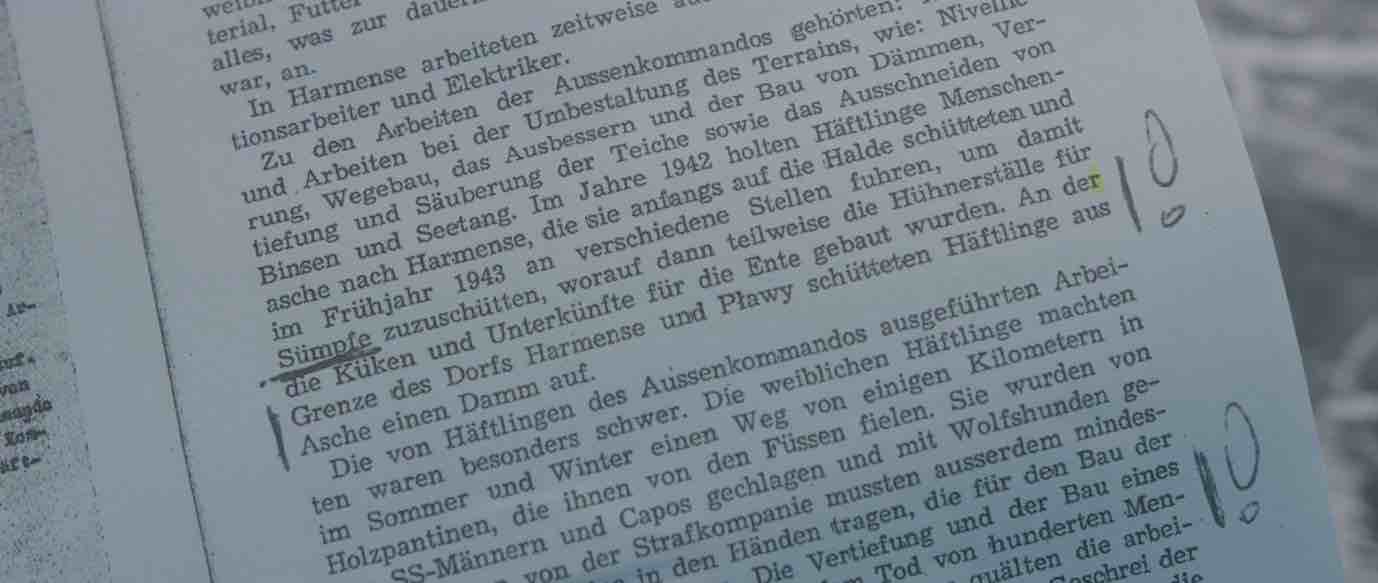
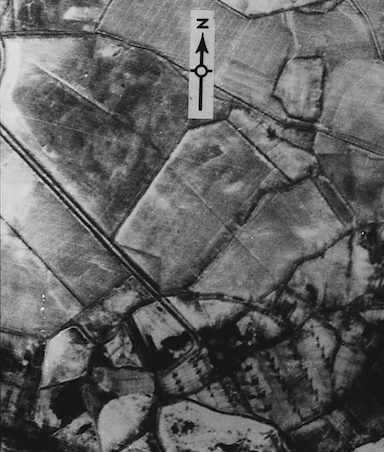

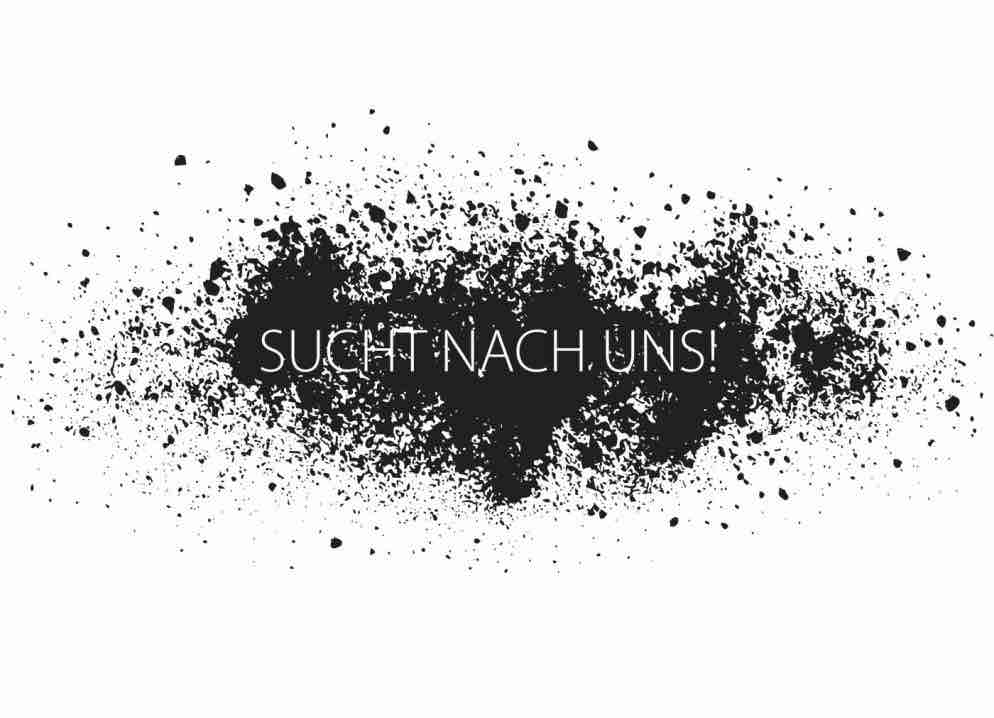
Historical photo research: on a small hill above the prison camp lies the crematorium with dissection rooms and incinerators, which was only completed in the fall of 1944. 5,000 corpses were cremated here. The ashes were dumped down the slope.
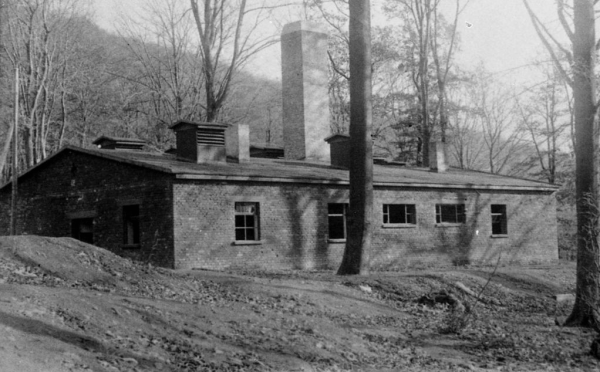
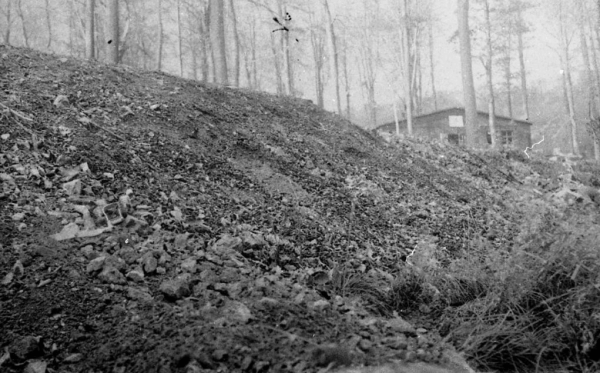
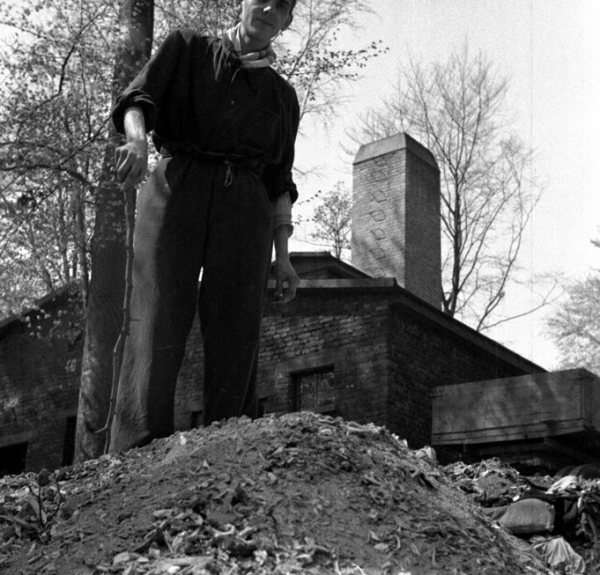
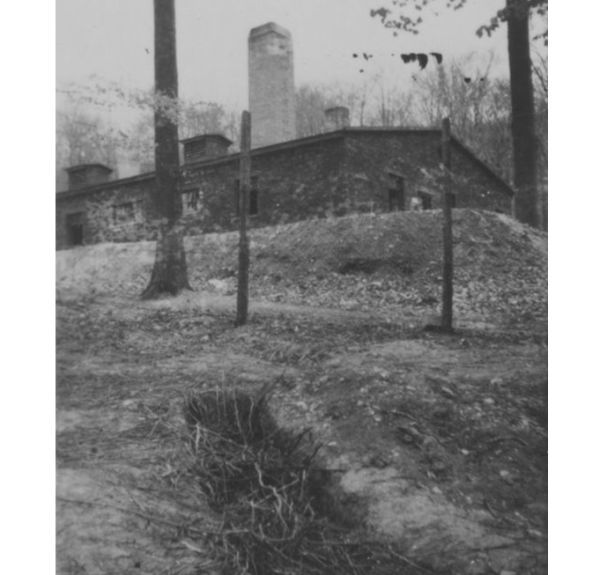
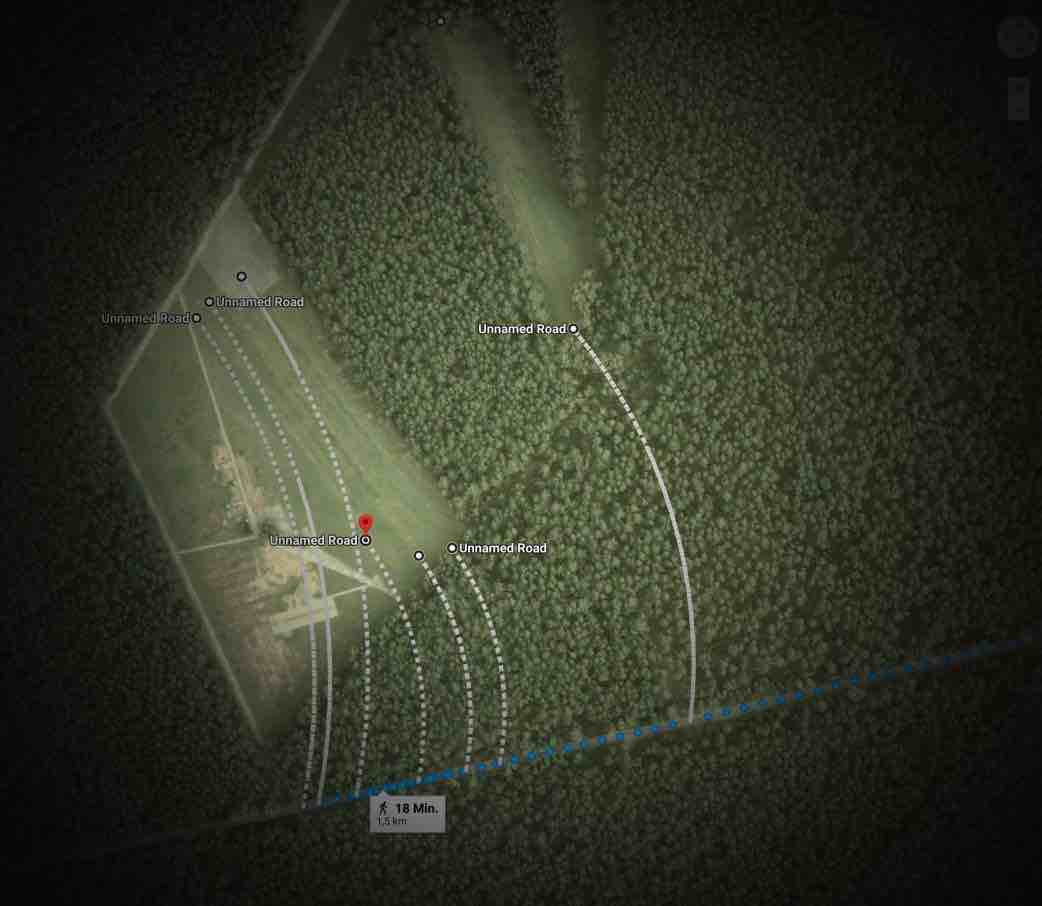
»It is absurd that everyone is outraged about the ashes, as if they had all thought about the fact that they exist at all. One should find a dignified ritual for it. And what's wrong with putting up a memorial? It's not about praising the CPB, or putting it down. It's about listening and hearing the sound that rises from those ashes.«

»Even though the millions of Nazi victims are now forever united in historical anthropogenic sedimentary layers, one lifetime ago they were all individuals with completely different beliefs, political opinions, desires, hopes, and fears. So it should be out of the question to mix them up in an anti-fascist bone mash.«

»While the general public, as if in reflex, worries about disturbing the dead and apparently does not want to be reminded of the millions of dead all over the place, I am distancing myself in the strongest terms from your oath to KILL the enemies of democracy! What demon has possessed you? Do you want to become murderers yourselves? Do you demand the death penalty?«

»I can understand the CPB @politicalbeauty. They're desperate because everyone around them is just shrugging their shoulders while whole sections of society are moving to the right and far right, knowingly, despite everything written in the history books.«

»Years ago something like this would have seemed morbid and exaggerated to me, but now it is in line with the Zeitgeist.«

»Especially in times when the mainstream media reports on the AfD party congress as if it were an association of rabbit breeders, we need campaigns like these.«

»›Letting the dead rest‹ is synonymous with ›forget the dead.‹ This is especially true in this day and age, where so many survivors, even children of the survivors, have grown elderly and died, the mass graves have long since grown over, and our memory and attachment to the event is fading. People say the monument ›ugly.‹ They are correct. But the Holocaust was ugly. They seem to want us to remember an ugly, viscous event with peaceful graveyards and pleasant fields; as if the deaths of Holocaust victims are comparable to those deaths by age, accident or hereditary disease. I disagree with many of your actions but this is a badly needed, ›truthful‹ monument. We need more pieces like it, not less.«

»This memorial must stay as a reminder of how Hitler was able to take power. Fascism didn’t start with Auschwitz.«

»It was perfect critical art and that’s why it isn’t standing anymore. It was too dangerous. The subject of the conservatives handing over power to the dictatorship is too explosive.«

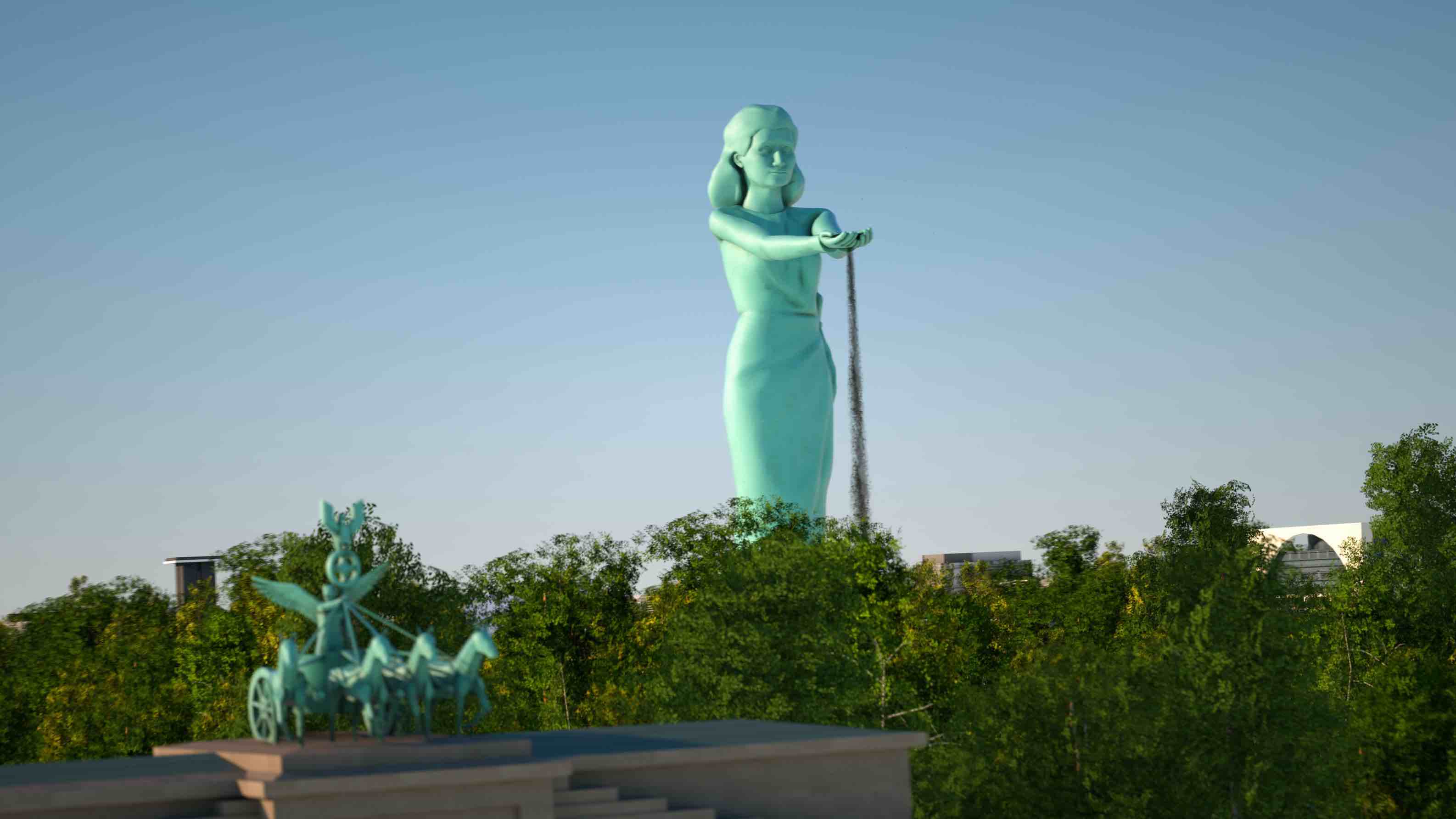

Mala Zimetbaum is an allegory of unbroken moral courage. As is her unconditional resistance against fascism and for the personal responsibility of each individual never to let Auschwitz happen again. Or as Adorno put it, »the only real force against the principle of Auschwitz would be autonomy, if I may use the Kantian expression: the force for reflection, for self-determination, for not taking part.« The whole system of the National Socialist Party was premised on breaking the moral courage of its followers.
The politics of this country can breathe in some of her unbroken spirit – the spirit of resistance. With ashes in her hands, she represents a superior human right against state law. On her pedestal is written in German and Polish: to remember is to fight.
